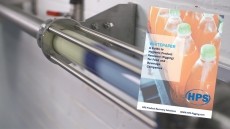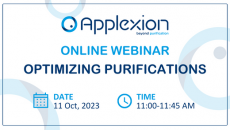‘Health-harming’ PFAS chemicals ‘widespread’ in disposable food packaging

Research conducted by eight civil society groups, including Czech NGO Arnika, the Health and Environment Alliance (HEAL) and CHEM Trust, found PFAS are ‘widely’ used in disposable food packaging.
In total, 38% of samples taken from takeaways, supermarkets and e-shops across six European countries were ‘suspected’ to have been treated with PFAS chemicals to achieve oil repellency. Seventy-six percent of samples sent for chemical analysis show ‘intentional treatment’ with PFAS. Traces of PFAS were detected in ‘all samples’ selected for lab analysis and collected in the Czech Republic, Denmark, France, Germany, the Netherlands and the UK.
“PFAS pollution is so ubiquitous that we found PFAS even in products which have not been intentionally treated with these chemicals. The same PFAS contaminants have been found in the Arctic air, snow and wildlife. Every year of delay in regulating this group of ‘forever chemicals’ increases the pollution burden for future generations of people and wildlife. A ban on all non-essential uses of PFAS chemicals should be urgently implemented,” commented Dr Julie Schneider, PFAS Campaigner at CHEM Trust.
Health and environmental concerns
In their report, the NGOs said that the use of PFAS in single-use disposable packaging is a threat to population and planetary health.
PFAS molecules are made up of a chain of linked carbon and fluorine atoms. The strength of the carbon-fluorine bond means these chemicals essentially do not degrade in the environment, giving them the name ‘forever chemicals’.
People are exposed to PFAS through contaminated drinking water and food. According to a 2019 briefing from the European Environment Agency on emerging chemical risks in the region, PFAS pollution is ‘widespread in Europe’. In the context of food packaging, studies have shown that PFAS can migrate from the packaging into the food.
“This adds to the total burden of chemicals to which people are exposed and increases the risk of health impacts. Of the relatively few well-studied PFAS, most are considered moderately to highly toxic, particularly for children’s development,” the Agency noted.
A growing body of scientific evidence points to potential adverse health impacts associated with PFAS exposure, including liver damage, thyroid disease, high cholesterol, obesity, hormone suppression and cancer.
“It is high time for the European Union to act and immediately and permanently ban the entire class of PFAS in food packaging, to protect the consumers in the first place. It is clearly not essential to use highly toxic and persistent chemicals, posing such a serious health and environmental risk, in throw-away food packaging, especially when there are safer alternatives,” commented Jitka Strakova, the main author of the study and Arnika / International Pollutants Elimination Network (IPEN) science advisor.
‘Double standards’ uncovered
According to the coalition of health and consumer rights campaigners, regulation has proven an effective tool to incentivise companies to stop using PFAS compounds.
In Denmark, for instance, the use of forever chemicals in paper and board food packaging has been banned since July 2020. The study showed that none of the sampled McDonald’s French fries bags bought in Denmark exhibited PFAS treatment. However, intentional PFAS treatment was detected for the same items bought in the Czech Republic and the United Kingdom.
The NGOs said that this shows regulation can prove an effective tool – but also demonstrates the lack of an EU-wide harmonised approach to food contact materials results in ‘different levels of protection’ for consumers across the bloc.
In particular, the campaigners stressed that ‘alternatives to PFAS-treated’ food packaging exist and are available on the market.
Responding to the study, a spokesperson for McDonald’s told FoodNavigator that the fast-food giant committed to removing fluorinated compounds from packaging materials globally by 2025 in January of this year.
“This builds on earlier actions including the elimination of a significant subset of PFAS in 2008 and the removal of BPA/BPS and phthalates in 2013 and 2015, respectively. We are a business that continues to push itself and we are working hard to beat our own 2025 ambition,” the spokesperson told us.
“All McDonald’s packaging materials are compliant with FDA, EU and all local regulatory bodies and we are continuously monitoring, testing and innovating on all packaging materials in partnership with our suppliers to ensure they are safe for customers and the environment.”
Zero pollution target a ‘once-in-a-century' opportunity
Earlier this month, the European Commission launched a ‘zero pollution action plan’ that aims to move the region towards zero pollution for air, water and soil by 2050.
Natacha Cingotti, Health and Chemicals Lead at the Health and Environment Alliance (HEAL), stressed that this represents an important moment in the development of Europe’s PFAS regulation.
“When Europe's stated objective is zero pollution for a non-toxic environment, we cannot accept that food packaging disposed of within a matter of minutes is treated with chemicals that persist and accumulate in the environment and are increasingly being associated with severe health impacts.
“The large European PFAS restriction under development is a once-in-a-century opportunity to address such uses and work towards phasing out the production and uses of PFAS, wherever they are unnecessary and it is possible,” Cingotti said.















